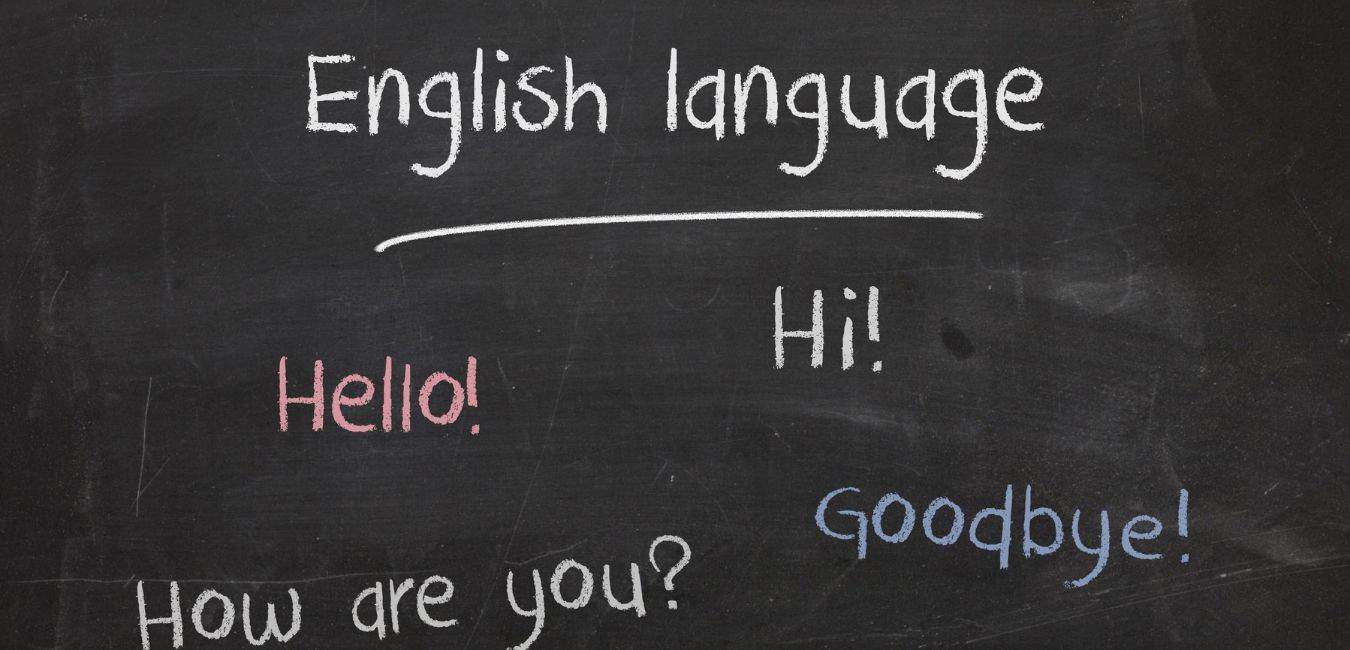10 Benefits Of Learning A Second Language for Your Brain
Fluency in a second language enhances many cognitive abilities.
Even if you never leave your house, learning a second language does more than just help you communicate with people who speak that language. It also improves your life in other ways.
Studies show that bilingualism can lead to better memory and cognitive skills. One study found that bilingual people had stronger connections in the brain that were associated with language processing, which leads to better mental flexibility and cognitive skills.
Table of Contents
What are the cognitive benefits of learning a second language?
1.Learning a second language means a constant mental workout
When you learn a second language, you are constantly using your brain to translate, categorize and store words. That’s how you learn, and that’s how the brain works.
Learning a new language causes the neurons in your brain to fire continuously, strengthening their synapses. This is a mental workout, much like lifting weights for your muscles.
2.Learning a second language can Improve your memory
Learning a second language can improve your memory for a number of reasons.
First, it forces you to use a different part of your brain. When you learn a language, you are exercising your brain in a different way than you do when you speak your native language. As a result, your brain is developing new neuronal pathways, which in turn will lead to the development of new neurons and synapses, all of which will increase memory improvement.
Second, when you learn a language, you expose yourself to new vocabulary, new grammar, and new concepts. The more new items you are exposed to, the more likely you are to remember them.
READ MORE:
3.Learning a second language can rewire your brain
We’re all familiar with the benefits of learning a second language, but we often overlook the long-term benefits of learning a second language, such as changing your brain and rewiring your brain.
Structural differences in the brains of bilinguals and monolinguals have been identified. Bilinguals have more gray matter in the posterior part of the left inferior parietal cortex and in the right inferior frontal gyrus.
This is because the brain processes a second language differently than it processes the native language. Research has shown that the neural circuits involved in language learning are greatly influenced by the experience of growing up in a second language environment.
The truth is, a second language can actually change the way your brain works and rewire your gray matter for the better.
4.Learning a second language fosters creative thinking and problem-solving
A recent study shows that learning a second language changes the way the brain processes information, improving the area of the brain responsible for learning.
When you learn a second language, your brain is exposed to two completely different sets of symbols and ideas. The first language allows us to process and understand the world around us, while the other language requires us to think in a different way.
The result: increased cognitive flexibility, which is the ability to think in new ways. This helps a person to brainstorm new ideas, associations, and connections, and so is more likely to produce creative solutions to problems and tasks.
5.Learning a second language can prevent age-related mental illness
Learning a second language is a great way to stimulate your mind and stay mentally active. It can be beneficial for adults who are at risk of age-related mental decline.
A new study finds that bilingualism slows the inevitable decline of grey matter in the brain. The study’s findings lend support to the idea that learning a second language can delay the onset of age-related mental decline, including Alzheimer’s disease.
6.Learning a second language can improve your confidence
Learning a second language promotes a positive feeling about your intelligence. It can improve your communication skills in a global society by developing an awareness of other cultures.
It can increase self-awareness, enhance cognitive skills, improve mental health and dramatically increase confidence levels.
What are the social benefits of learning a second language?
7.Learning a second language can connect with other cultures and build tolerance
Since language is a system of communication, learning a new language allows you to communicate with a wider range of people. It also means you can travel to a new country and experience their culture firsthand.
It can connect people to other cultures and build tolerance. When people learn a new language, they are exposed to a different culture. This helps these language learners build tolerance.
Meanwhile, through understanding another culture, you are able to understand your culture better because you are able to see it with new eyes.
8.Learning a second language can make new friends
Learning a second language can be a great way to make new friends by expanding your social network.
It is often seen as a means of making new friends. It’s a great way to break the ice in a country where you don’t speak the same language.
It can enable you to make new friends by communicating better with native speakers of that language.
9.Learning a second language can enhance future career opportunities
The ability to communicate with people from other countries can have many benefits for your future career. You can expand your professional network and improve your job prospects.
Learning a second language is the key to gaining this ability. That’s because there are few skills more valuable than language skills, and employers are often eager to hire you because you can speak multiple languages. Many employers will also be keen to hire you because of your fluency in a second language.
READ MORE:
10.Learning a second language can have a better travel experience
When one is going on a trip and speaks two different languages, they may be able to communicate with locals and make new friends in their destination. Learning a second or third language not only improves one ’s self-confidence but also increases their intelligence.
Increased knowledge of foreign languages can make one more well-rounded. Learning about other cultures and places helps to expand one’s outlook. Finally, if one speaks more than one language they can travel around the world with ease and have a great time!
READ MORE:
What are the benefits of learning a second language as a child?
Today, it is widely accepted that children who learn a second language at an early age benefit in the long run. These children tend to be more confident and socially well-adjusted.
Learning a second language in early childhood has many benefits. It can help develop children’s intelligence, creativity, and improve their attention span. It can also help them learn about different cultures and gain a better understanding of the world.
Meanwhile, it helps children become better students and prepares them for the future by enabling them to communicate with people who speak a different language.
Learning a second language is easier as a child
Just like learning to walk and talk, learning to read a second language is much easier as a child. In fact, some studies have revealed that toddlers are able to easily learn a second language—even if it’s not their native tongue—thanks to a number of physiological factors.
This is because when we are young, our brains develop at a much greater rate than they do when we grow up. This is why children are more able to absorb a second language. Because of this, they are able to learn new words and phrases more quickly than adults are.
What are the benefits of bilingualism for students?
Bilingualism is the ability to use two languages. That can be an advantage for students for several reasons.
First, it can help them learn other subjects better. Second, it can make them more attractive to companies. Third, it can help them gain a better understanding of their own culture and that of others.
What are the benefits of bilingualism for adults?
Bilingualism or multilingualism can improve memory, especially for people over the age of 65. One study suggests that bilingualism can delay or reduce the risk of Alzheimer’s disease by four years.
Other benefits include enhanced cognitive development, increased creativity, and a reduced risk of depression.
FAQ:
What are the best memory techniques for language learning?
There are several different memory techniques you can use to help you learn a language. These include:
- Method of Loci – Associating names or phrases with a familiar location to help you recall the information later.
- Spaced Repetition – Repeating the information out loud. Anki is one of the best spaced repetition systems available and it’s free. It can seem complicated to use at first, but its powerful extensions are definitely worth investing the time to get familiar with.
READ MORE:
What is the most valuable second language to learn?
There are many languages that would be considered valuable to learn, but the most valuable second language is Spanish.
The reason Spanish is so valuable is that it is spoken in so many countries and on so many continents, by over 400 million people. It is a great way to communicate with some of the world’s people.
Spanish is spoken in over a hundred different countries, including the United States, Mexico, Argentina, Spain, Chile, and other South American countries such as Peru and Bolivia. Spanish is also spoken in Central America and the Caribbean.
Spanish is the official language of twenty-one countries, which makes it more valuable to learn than any other second language.
When you decide to learn Spanish, you will find it to be a relatively easy language to learn. The pronunciation of vowels and consonants is very similar to that of English, making it easier to pronounce correctly. The grammar is also very simple, making it easier to learn.
Once you have built a solid foundation in Spanish, you can decide if you want to pursue it as a hobby, or as a career path.
What is the easiest second language to learn?
Not every language is easy to learn, but the easiest second language to learn is Spanish.
Spanish is a Romance language of Latin origin that has much in common with English. It uses phonetic symbols, has fewer pronunciations than English, and is not as difficult to pronounce as English.
Spoken Spanish does have more pronouns, but this can be practiced in a short period of time. Because of these factors, Spanish is also one of the easiest languages to learn in terms of grammar and writing structure.
What is the most difficult language?
The most difficult language is the one that is not in your native tongue. Since you are required to learn it, you might as well make the process easier by learning it as a second language and not a foreign language.
One of the most difficult languages to learn is Mandarin Chinese because it has so many different tones and requires that you know how to pronounce every single word perfectly.
If you make even the slightest mistake, the word is completely different. If you are in a country where they speak this language, it can be really difficult to find someone that speaks English. It takes years of practice to speak Mandarin correctly, but there are many online courses that you can use to help.
Conclusion
A successful career, a fascinating journey, a good time – whatever the reason for learning a second language, you just have to act on it right away.
Sign up for a language learning service today and get a free trial!






